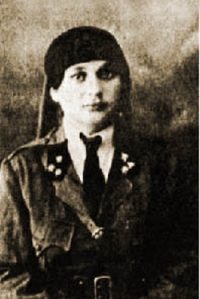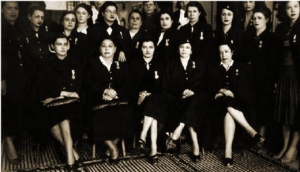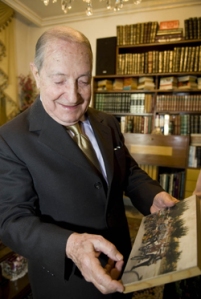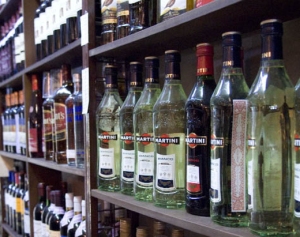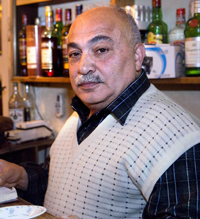What does the Syrian constitution say about citizenship and how might this change?
With the escalation of the unrest in Syria and the accompanying surge in political dialogue, there has been a resurgence of discussion about the concept of citizenship.
In his book Guide to Citizenship, Hassan Abbas, a Syrian researcher, wrote that it is not enough to define citizenship as acquiring a nationality and enjoying the civil and political rights it offers. The definition includes active participation in public life.
“Freedom is the legal status quo of the citizen meaning that a citizen is free to choose between becoming an active citizen who participates in public life or…being a passive one,” Abbas wrote.
“Citizenship means the right of citizens to participate in all aspects of life,” Adel, a young theater critic who asked to remain anonymous, told Syria Today. He explained that the concept combines rights and duties, but that in Syria, duties trump rights.
“Limiting citizenship to Syrian Arabs is unacceptable,” Maalouf declared. “A citizen must be any person who lives in this land and has specific rights and duties.”
Until recently, broader duties and rights as citizens went ignored, he argued, because people were more concerned with their everyday struggles.
“Through chatting with friends or with the grocer, I have a perception that the majority of people here have a similar direction in life: to secure a living for their families,” he said. “What has been happening [since the unrest started] put this view to the test. Things are bigger than that.”
The outline
Lawyers interviewed by Syria Today argued that deficiencies in ensuring citizens’ rights in Syria come from flaws in the constitution, where the state defines its idea of citizenship and organises the relationship between the government and citizens. Others said that the constitution guarantees adequate rights to citizens; however, the problem lies in many laws which are, in fact, unconstitutional.
In his speech last month, President Bashar al-Assad said that the new media, parties and electoral laws will allow “citizens to participate in making decisions, monitor and denounce” activities of the state. Making this change, Assad said, might require revising the constitution or issuing a new one.
President Assad said that no changes will take place before September and if any do occur they will be based on what the national dialogue meetings, held in July, recommended. It called for the establishment of a committee to “offer suggestions” that would create a “contemporary and new” constitution that “ensures political collectivity, social justice, the sovereignty of the law and basic human rights”.
Contradictory rulings
To implement citizens’ rights, as outlined in the Syrian constitution, articles from the very same constitution must be changed and effectively applied.
People’s political and civil rights can be found in the first chapter of the constitution titled “Basic Principles”. It grants all citizens personal freedom, equality before the law, participation in the political, economic, social and cultural life of society, the freedom of faith, the right (and duty) to work, free obligatory education, the right of free and open expression, freedom of the press and the right to demonstrate peacefully.
However, articles like number 8 – which grants the ruling Ba’ath party a monopoly on political power in the country – contradict and effectively negate the right of citizens to participate in political life.
Nazih Maalouf, a lawyer and former judge and the manager of Syria Court, a legal website that covers human rights and other legal issues in Syria, said the constitution includes many contradictory articles. For example, it states that all Syrians have equal rights and opportunities, but another article says that the country’s president must be Muslim and that legislation must be based on Islamic jurisprudence.
“Syrian women cannot pass down citizenship to their children, and they do not have the right of equal inheritance, or even [the right] to take independent decisions in many cases; like marriage, or travel,” Diala, a 27-year-old working in a private bank who asked to remain anonymous, said.
Syrian constitution states that all Syrians have equal rights and opportunities, but at the same time says that the country’s president must be Muslim and that legislation must be based on Islamic jurisprudence.
Anwar al-Bouni, a lawyer and head of the Syrian Center for Legal Studies, said that problems like these come from laws that contradict the constitution.
“In the Syrian constitution, there is no discrimination between men and women, but discrimination exists in some laws like the nationality one [which prevents Syrian mothers from passing their nationality to their offspring],” Bouni said.
Recently, a committee was set up to study the draft bill about amending Article 3 of the Nationality Law, which includes granting nationality to the children of Syrian women married to non-Syrians.
Another measure that contradicts the notion of universal equality came in with the constitution of 1961, which was drafted following a military coup that ended three years of union between Egypt and Syria, when the Syrian republic was first defined as Arab. This remained unchanged.
“Limiting citizenship to Syrian Arabs is unacceptable,” Maalouf declared. “A citizen must be any person who lives in this land and has specific rights and duties. Equality and people’s general liberties must be established by the constitution regardless of their religion or ethnicity.”
A new constitution, if amended or overhauled, should more clearly delineate citizens’ rights in order to prevent such contradictions in the future, he said.
“Individual liberties must be addressed by the constitution and should not be governed by laws because laws are subject to change, according to who is in power and are easy to play around with,” Maalouf explained. “The constitution is obligatory and is not easily changed.”
Challenges to change
“Changing the constitution alone is not enough. There should be a new constitution,” the veteran lawyer Bouni said.
According to Bouni, the power of the country’s constitutional court is restricted. It is supposed to be able to strike down unconstitutional laws. But the president, according to the constitution, assigns the members of the constitutional court to four-year posts, limiting the court’s independence. Another article in the constitution states that only the Syrian president or a quarter of the parliament can challenge unconstitutional laws.
As a result, the system is crippled, Bouni added.
“Obviously, they [members of parliament] are not going to issue unconstitutional laws and then refer them to court. Consequently, there are hundreds of unconstitutional laws in Syria and no one can challenge them,” he explained. “Since the establishment of the constitutional court not a single Syrian law has been challenged as unconstitutional.”
I published this article together with Syrian journalist Alma Hassoun in Syria Today
We used only first names for interviewees who wished to remain anonymous.



